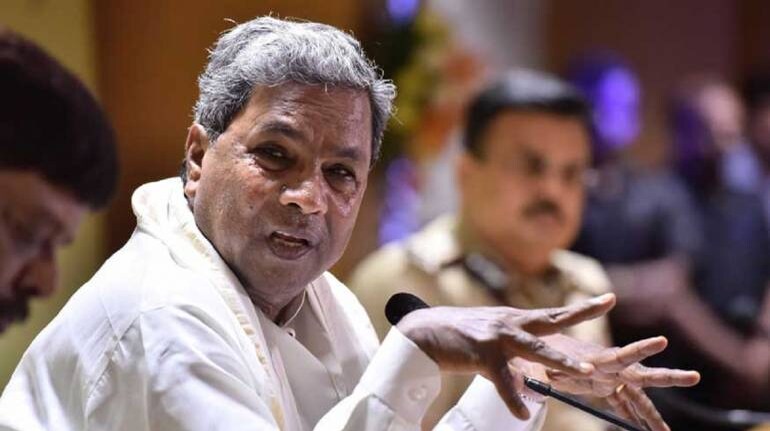



In the run-up to the Karnataka elections, the Congress had announced five major promises and had even distributed signed guarantee cards to households assuring that they would be implemented if the party came to power. It is now a month since Siddaramaiah and DK Shivakumar assumed office as Chief Minister and Deputy Chief Minister respectively and the government is struggling to meet its promises.
It appears that the Congress did little or no homework while making these promises, especially with regard to their financial implications. With finance department officers reportedly pointing out that implementing the freebies would cost the exchequer up to Rs 1 lakh crore, the government has begun adding one rider after another to exclude various sections from availing these benefits. Though this might be a prudent decision, it amounts to going back on the party’s poll promises.
The Cost Of FreebiesKarnataka currently has a budget size of Rs 3.09 lakh crore with a revenue surplus of Rs 402 crore. With 50 percent of revenue receipts going towards committed expenditure including salaries, pensions and interest, Siddaramaiah is left with very little leeway. After the implementation of Goods and Services Tax (GST), the state’s own revenue is limited to excise duties on liquor and fuel, stamps and registration, professional tax, taxes on vehicles, land revenue, among others. There is not much headroom left for increasing state taxes as liquor is already heavily taxed, while the government is unlikely to increase the cost of fuel as it would have a cascading effect.
This could force the Chief Minister to bridge the gap through borrowing. The fiscal deficit is currently contained at 2.6 percent of the State Gross Domestic Product (GSDP) as against the 3 percent ceiling fixed by the Karnataka Fiscal Responsibility Act, 2002. This means the government can afford to increase the borrowing while remaining within the set parameters. While this would be an easy way out, Siddaramaiah should bear in mind that it would also increase the tax burden on the coming generations while financially constraining future governments.
Siddaramaiah, who also holds the finance portfolio, will present his budget on July 7 and it would be interesting to see how he would bridge the gap, with the guarantees expected to cost Rs 50,000-Rs 60,000 crore even after the riders.
But The Poor Love ThemSo far, the government has been able to fully implement only one scheme without any preconditions, that is, “Shakti” which enables women to travel free of cost in non-air conditioned public transport buses anywhere in the state. The scheme has received an enthusiastic response with the ridership of buses increasing exponentially.
The government faces an uphill task in implementing Siddaramaiah’s favourite programme, “Anna Bhagya” through which 10 kg of rice will be provided to those under the Below Poverty Line (BPL). While 5 kg of rice is now provided by the central government, Food Corporation of India (FCI) which had promised to make good the remaining quantity at a cost, has suddenly reneged on its commitment. Though the Punjab and Chattisgarh have come to the state’s rescue, the government is at its wit’s end, considering the huge transportation costs involved.
However, the Congress has gained political mileage out of this by holding a statewide protest against the Narendra Modi government for “conspiring to scuttle the scheme”.
Another flagship programme, “Gruha Jyothi” aimed at providing free electricity to households that consume less than 200 units of power per month is scheduled to be launched on August 1. While during the campaign, Congress leaders had promised that 200 units will be free for households irrespective of their consumption, the new restrictions have not gone down well with many. The Congress, however, appears unperturbed with Energy Minister KJ George claiming that 95 percent of households would benefit even now.
The party has also gone back on its promise to provide a monthly allowance of Rs 2,000 for every woman head of family, by now announcing several preconditions. The government has also inadvertently pitted mothers-in-law and daughters-in-law against each other as only one of them can claim the dole.
The fifth flagship programme, “Yuva Nidhi” pertains to a monthly allowance to unemployed graduates and degree holders. Here too, the government has imposed many new conditions.
While social security measures do offer succour to the underprivileged, the government should realise that capacity building in the form of assets that can provide good education, healthcare and employment, will provide a lasting solution to people’s problems, rather than mere freebies.
Gautham Machaiah is a senior journalist and political commentator based in Bengaluru. Views are personal, and do not represent the stand of this publication.Discover the latest Business News, Sensex, and Nifty updates. Obtain Personal Finance insights, tax queries, and expert opinions on Moneycontrol or download the Moneycontrol App to stay updated!
Find the best of Al News in one place, specially curated for you every weekend.
Stay on top of the latest tech trends and biggest startup news.